The Branch Officer Exam, conducted by Loksewa Aayog, is one of the most prestigious and sought-after exams in Nepal. It is designed to recruit gazetted second-class officers who play a critical role in the administrative framework of the government. These officers, also referred to as Section Officers, are responsible for policy implementation, departmental management, and decision-making processes.
First Paper: Detailed Syllabus With Sample Questions
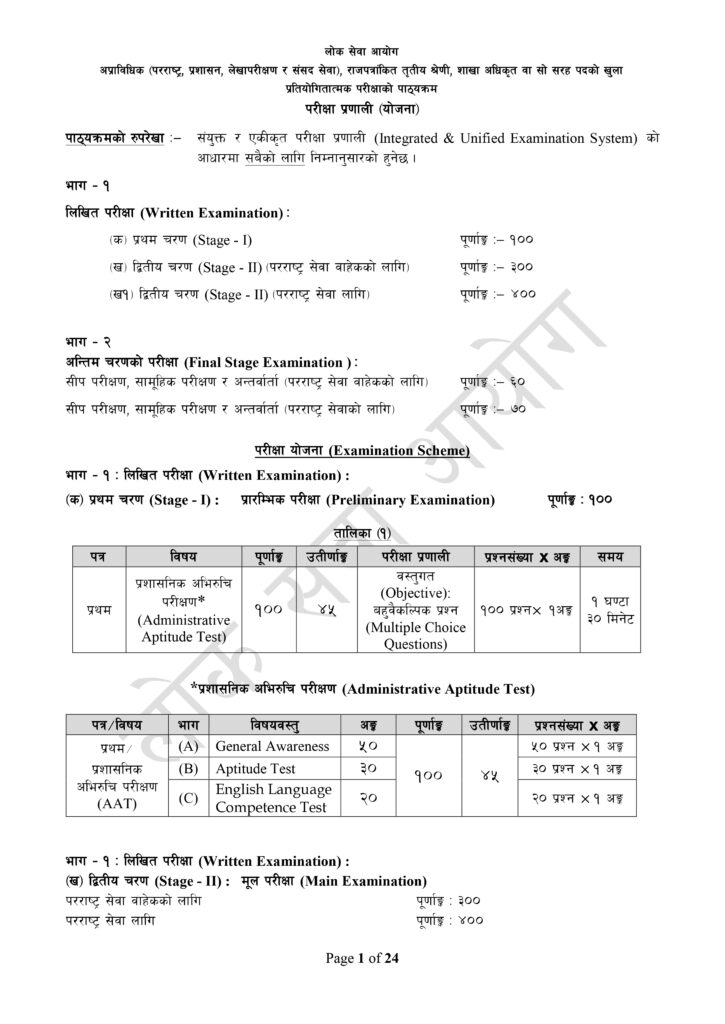
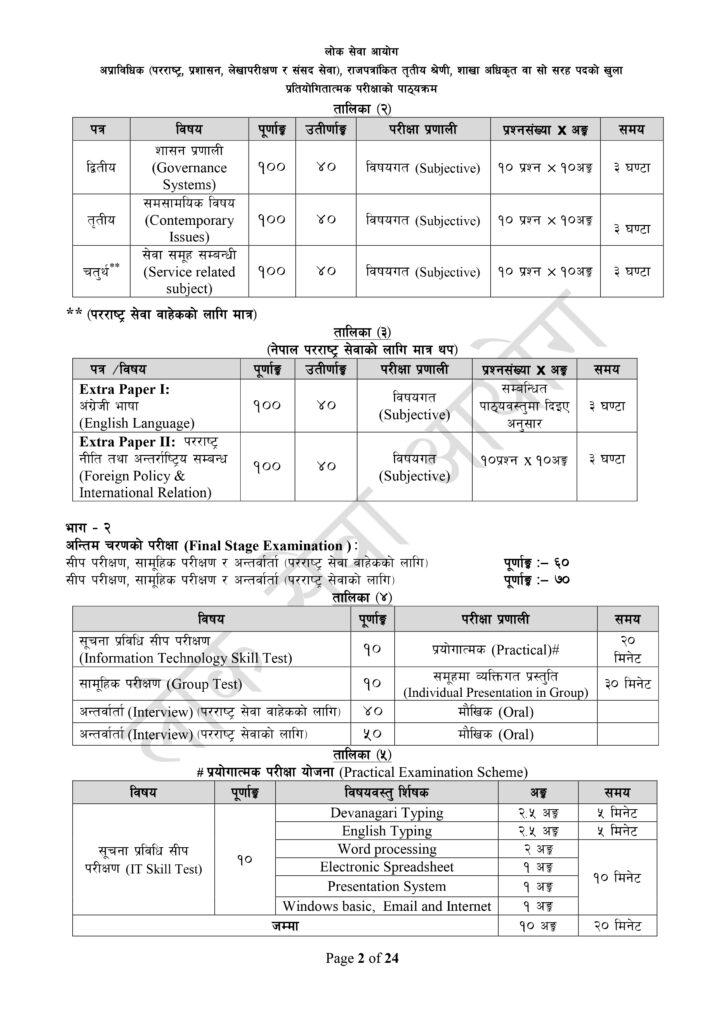
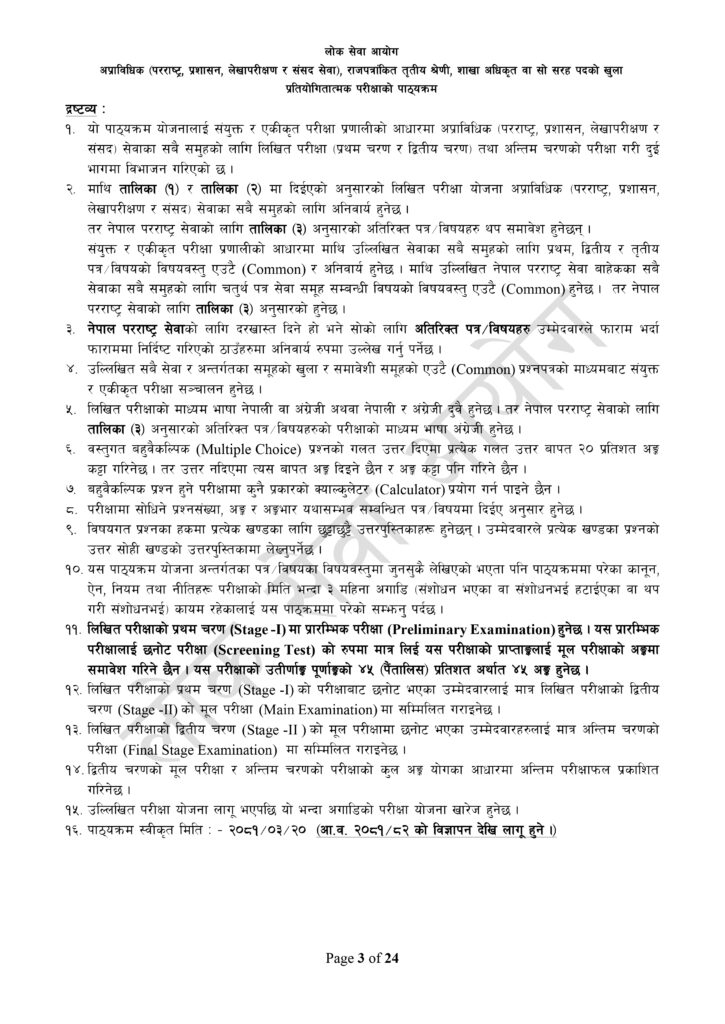
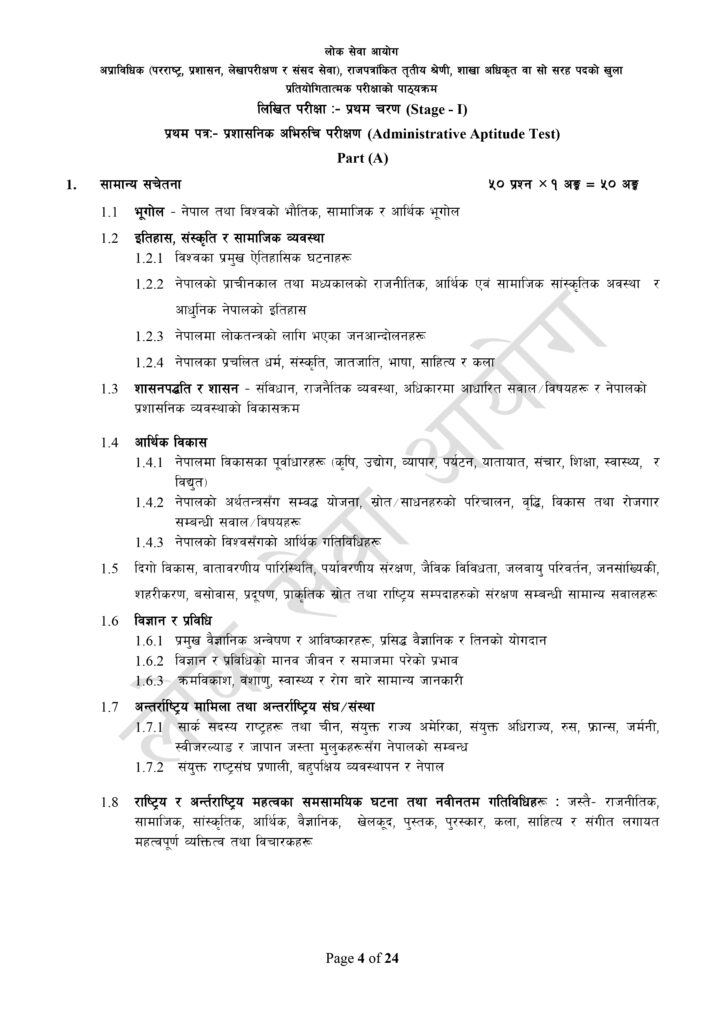
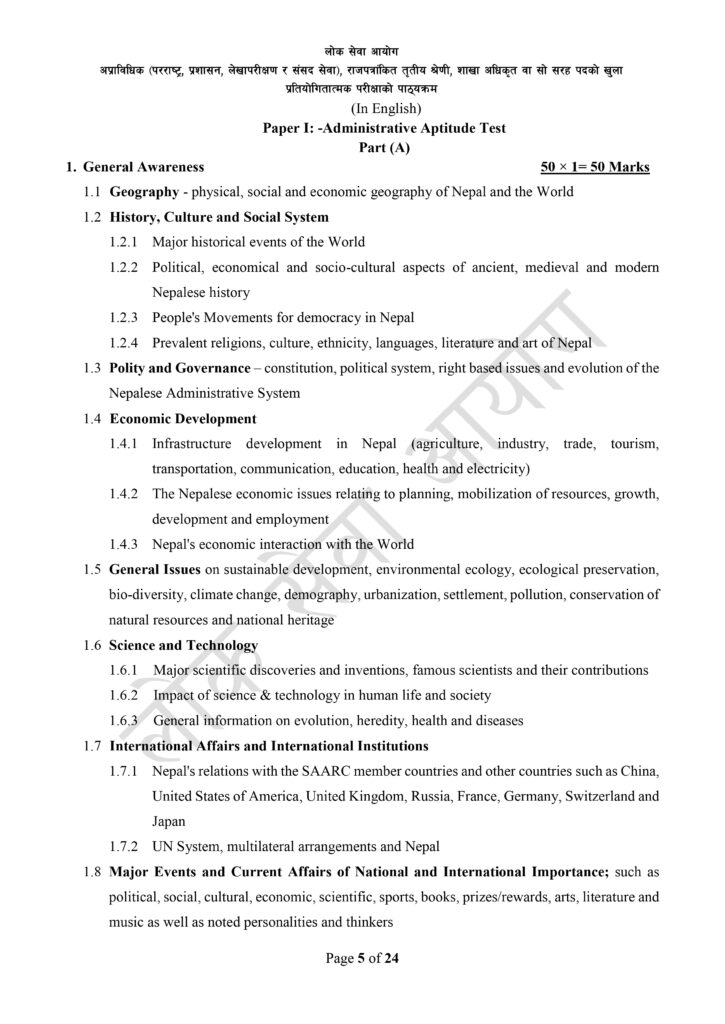
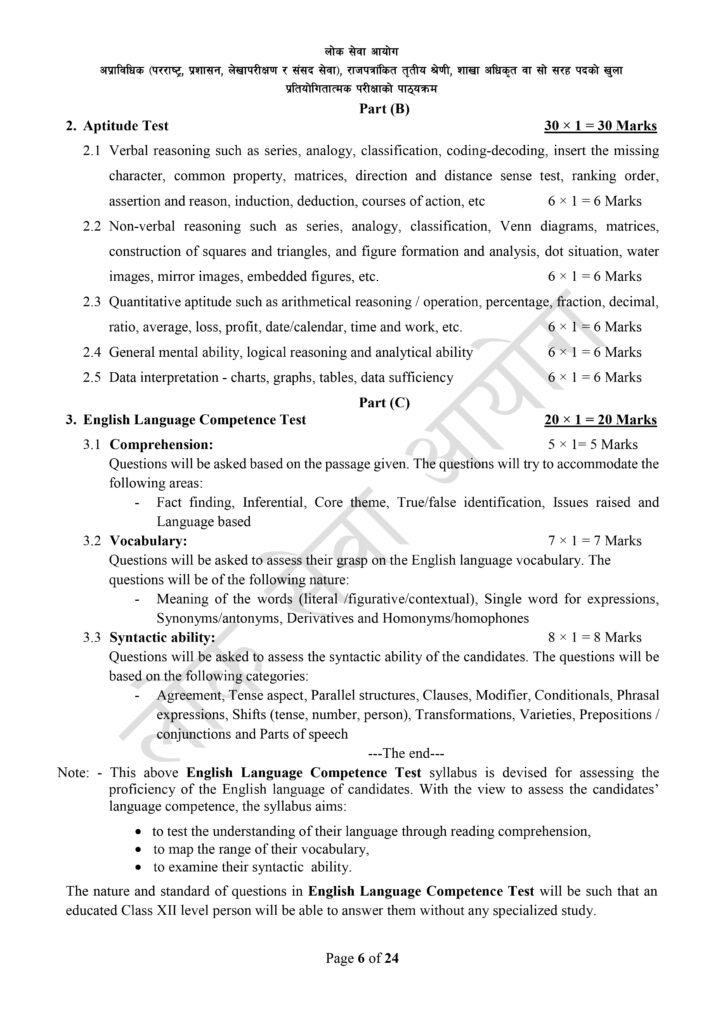
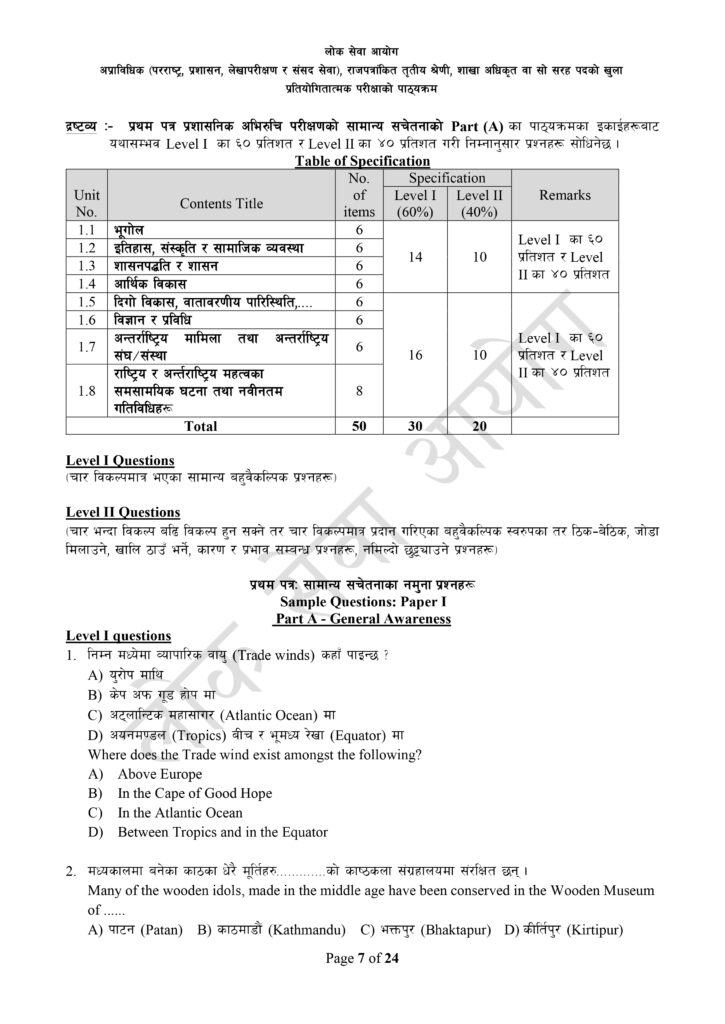
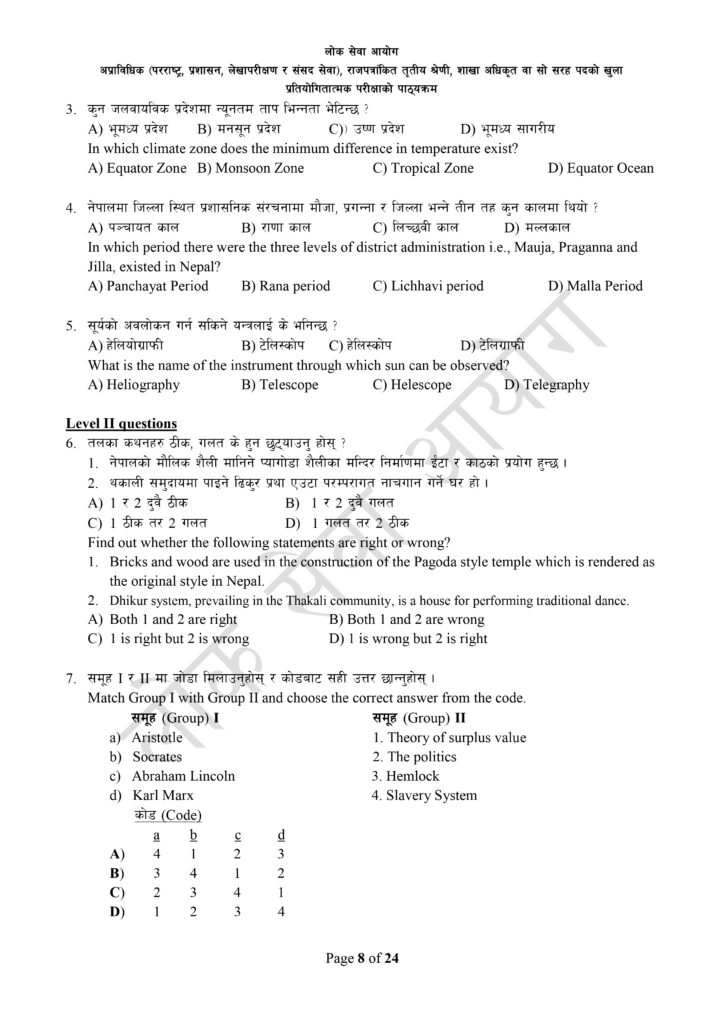
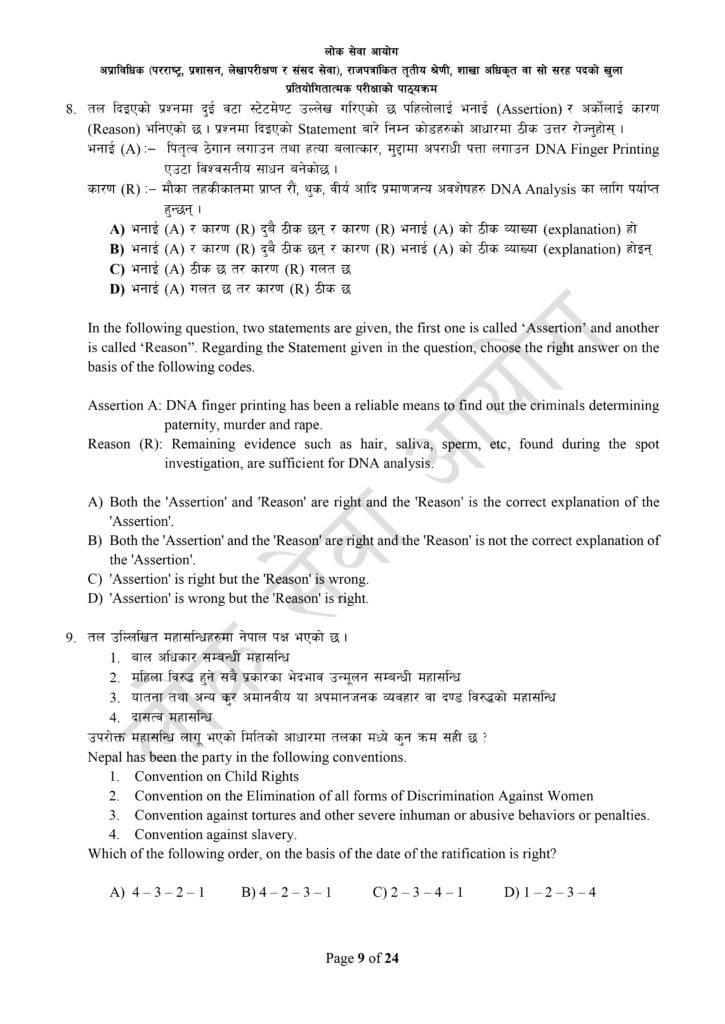
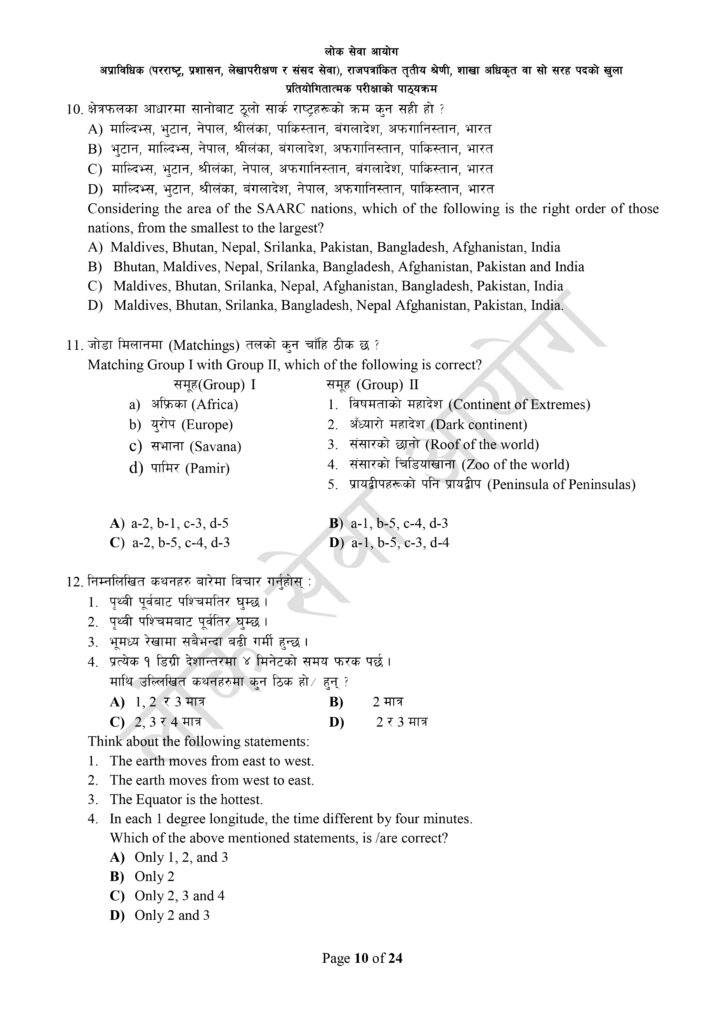
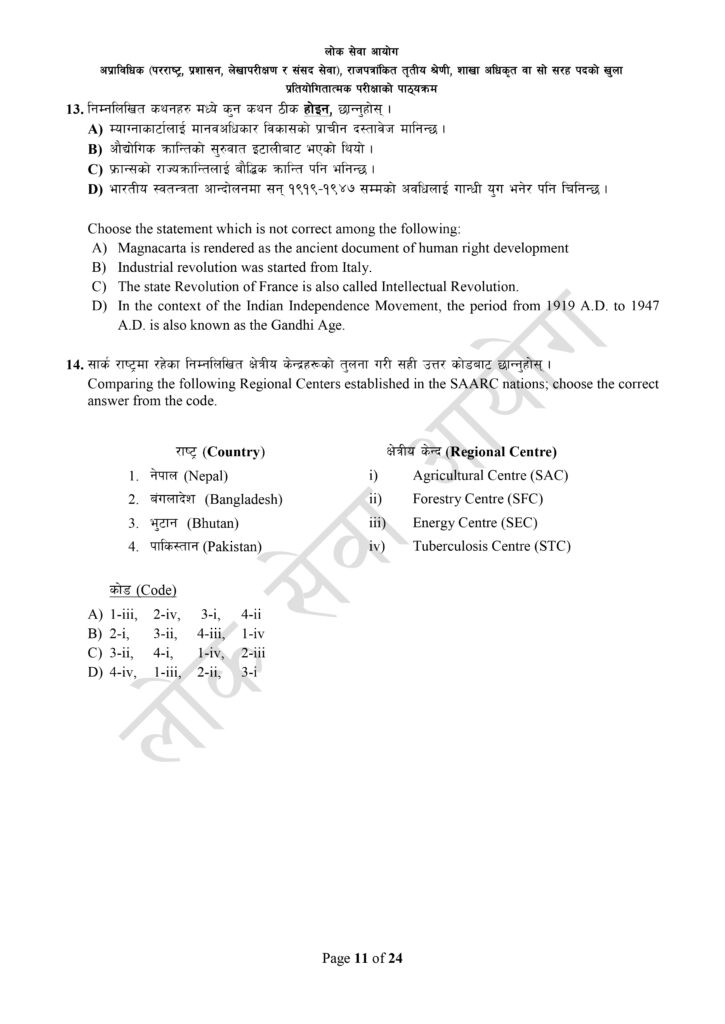
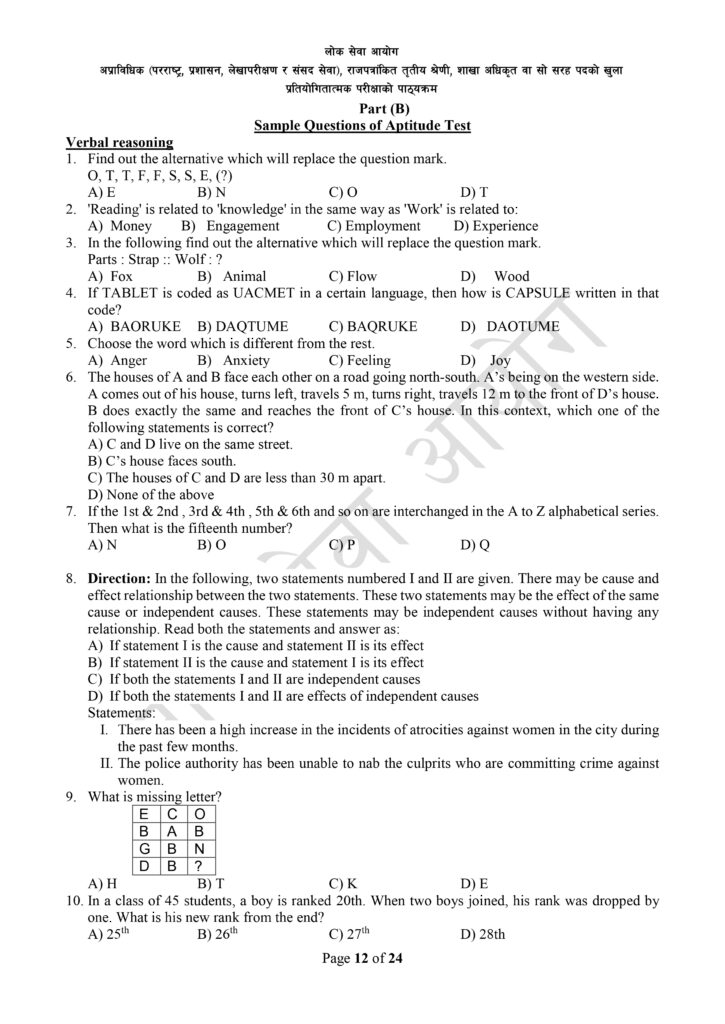
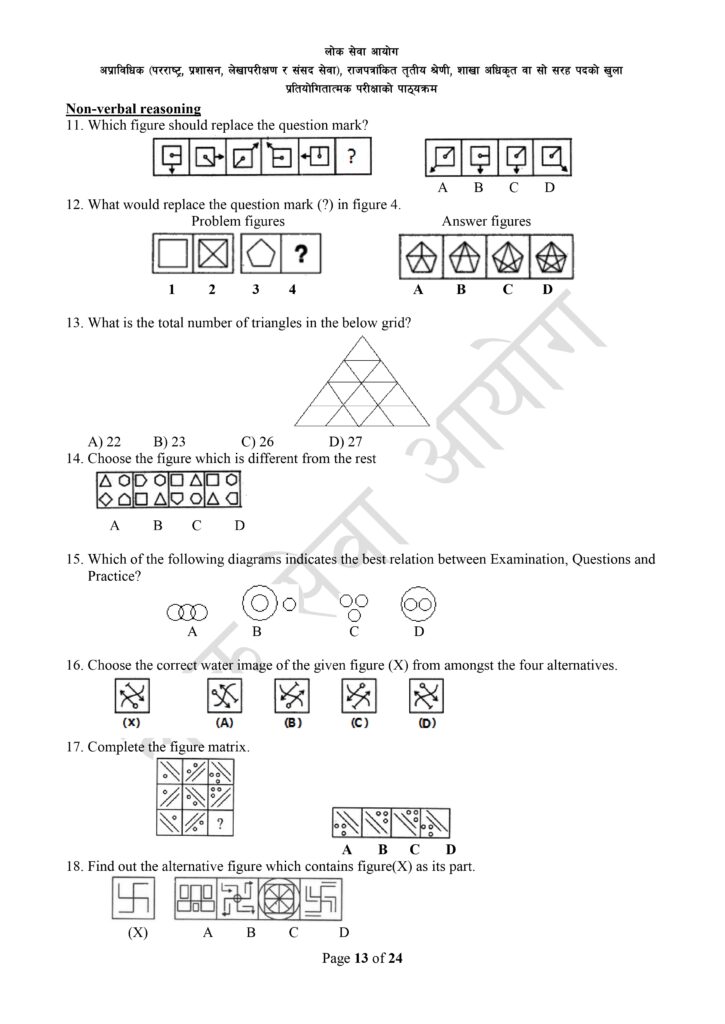
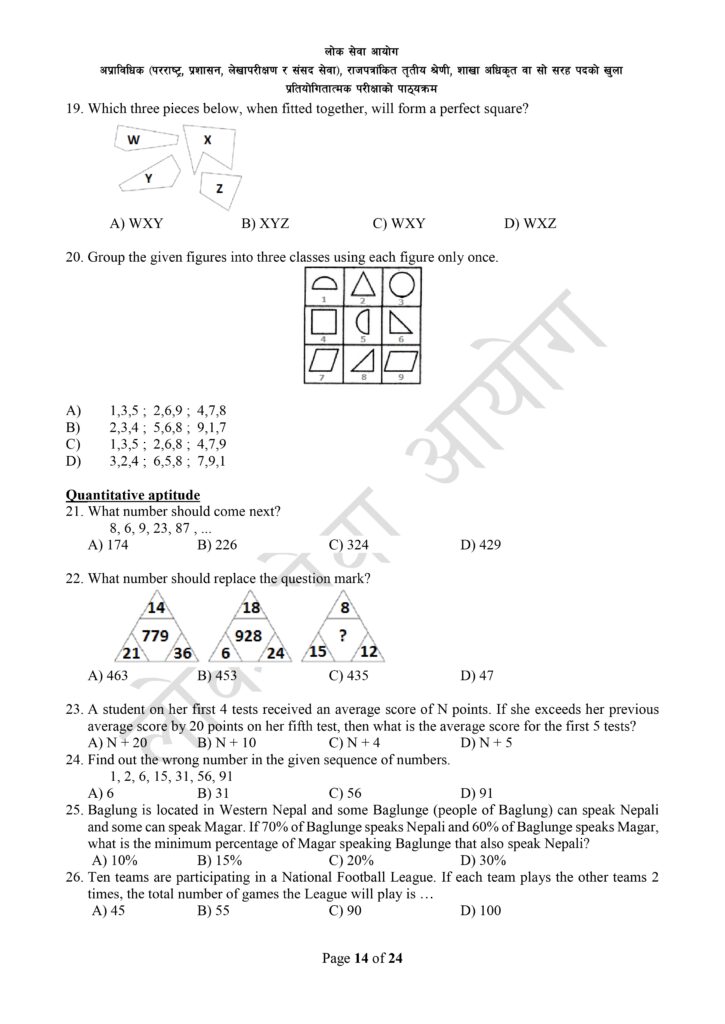
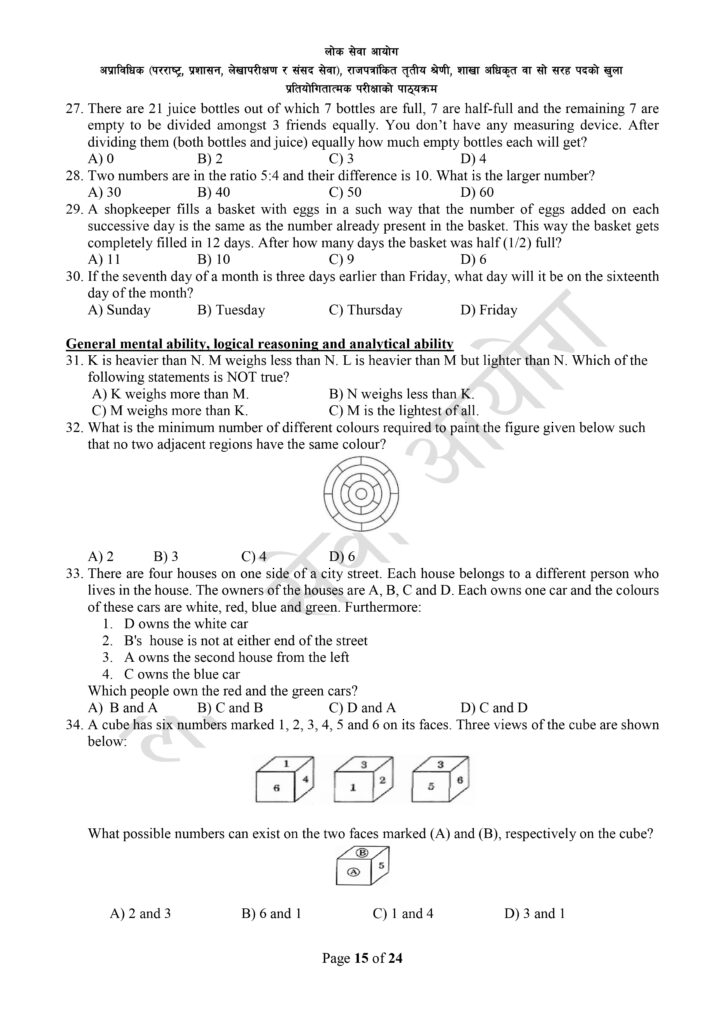
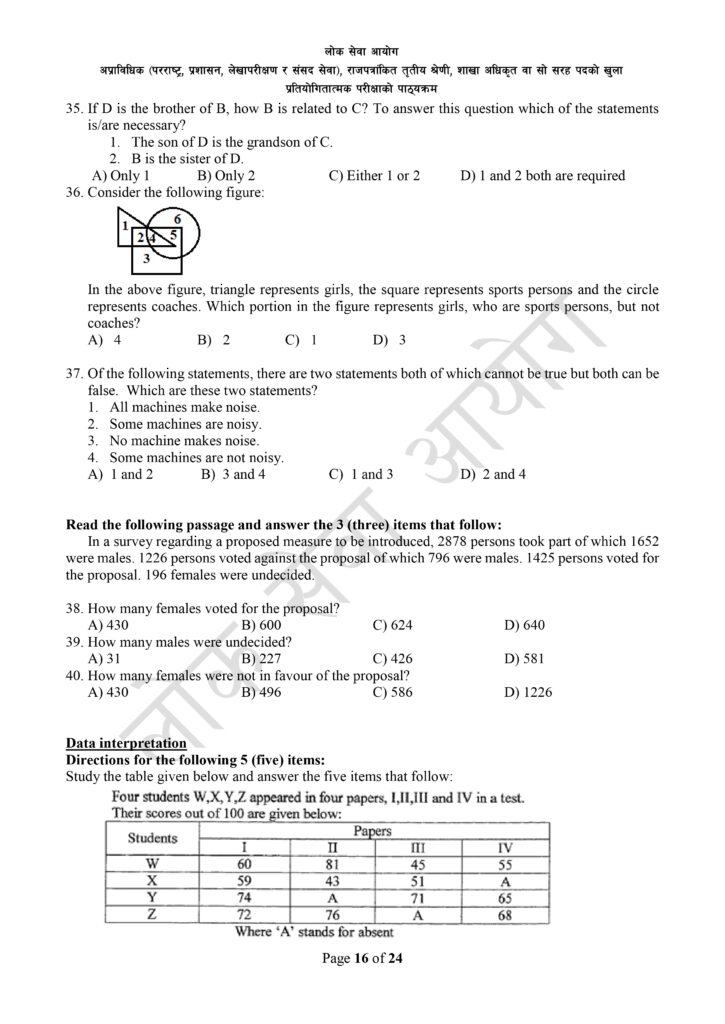
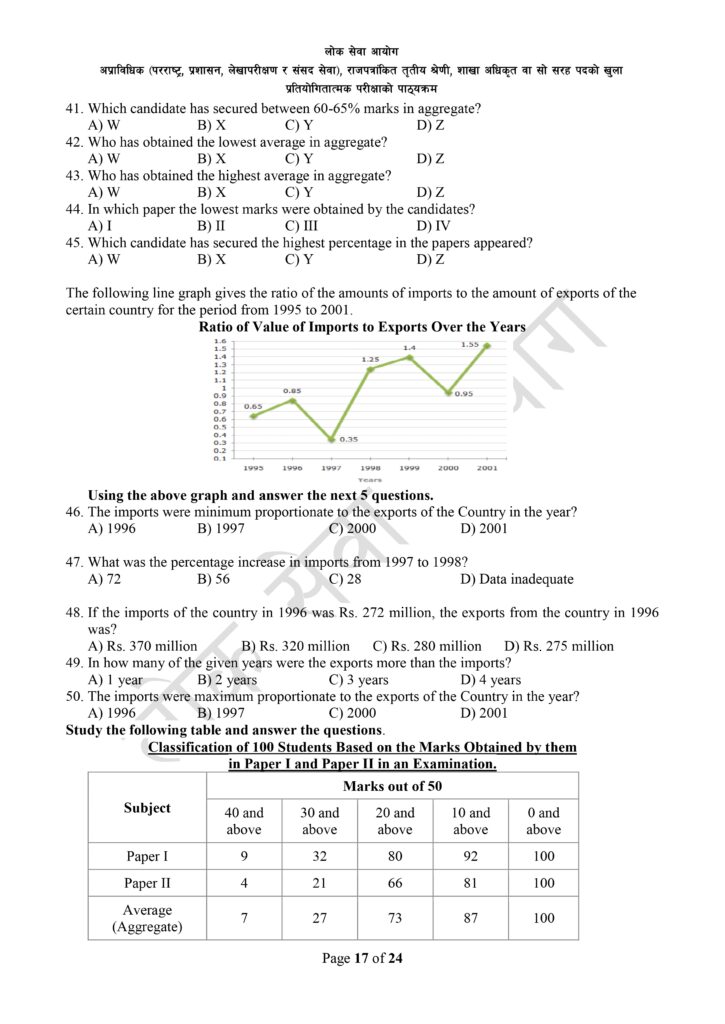
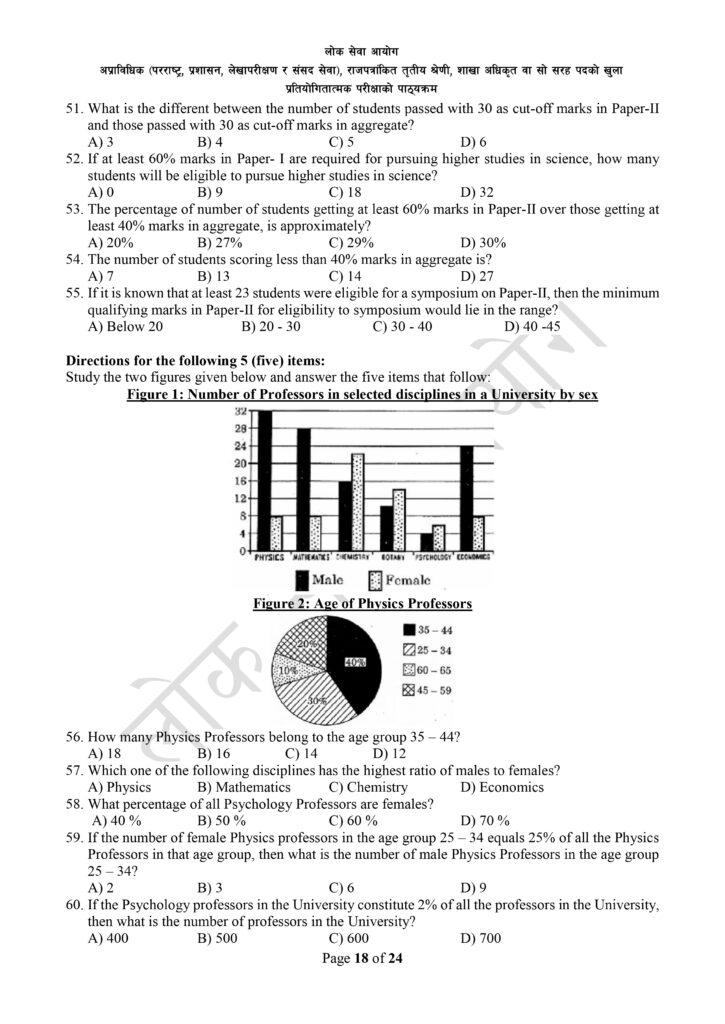
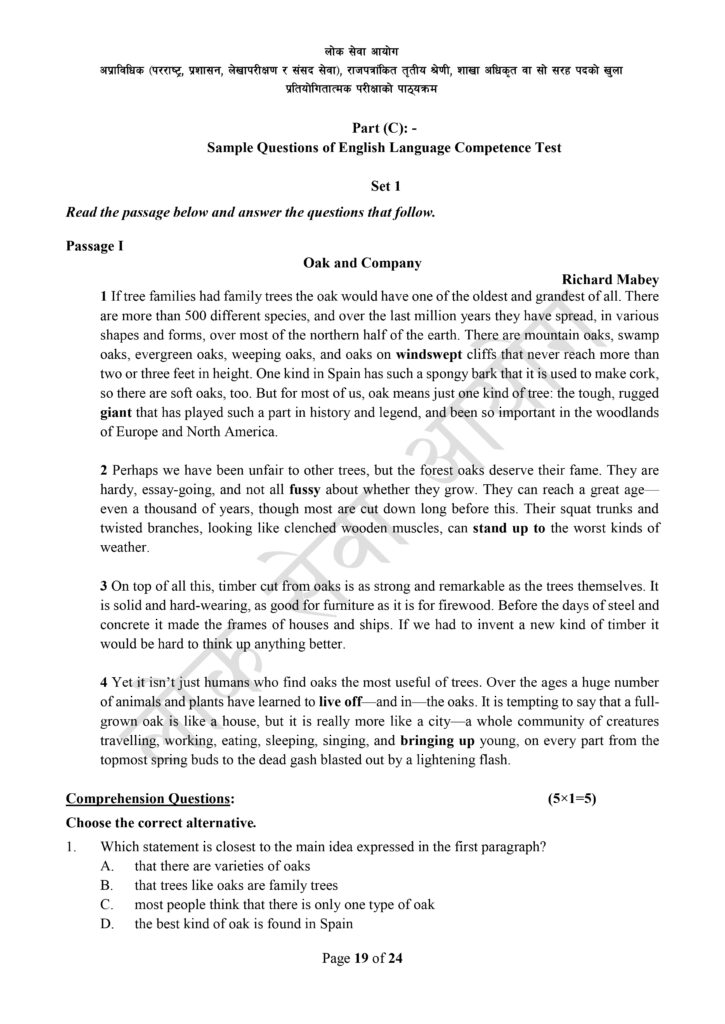
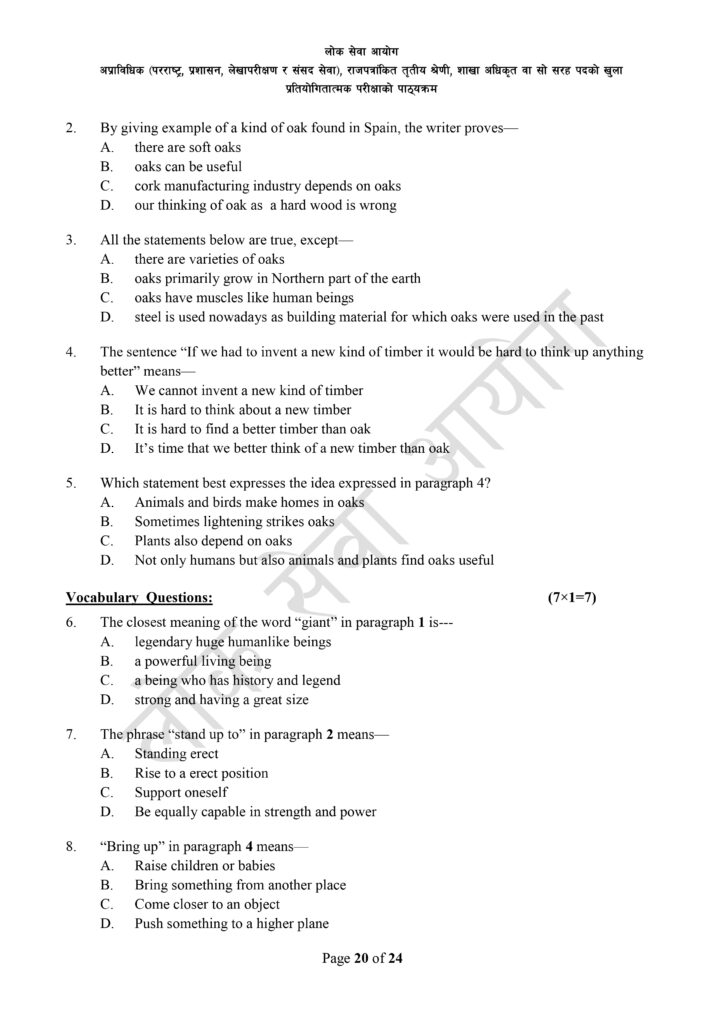
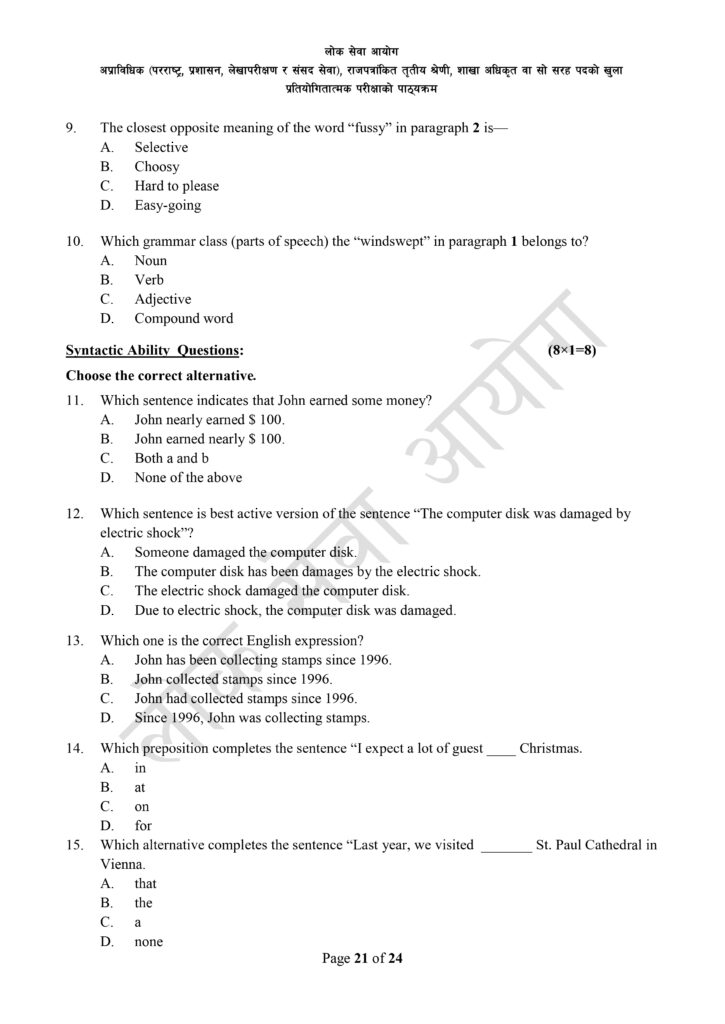
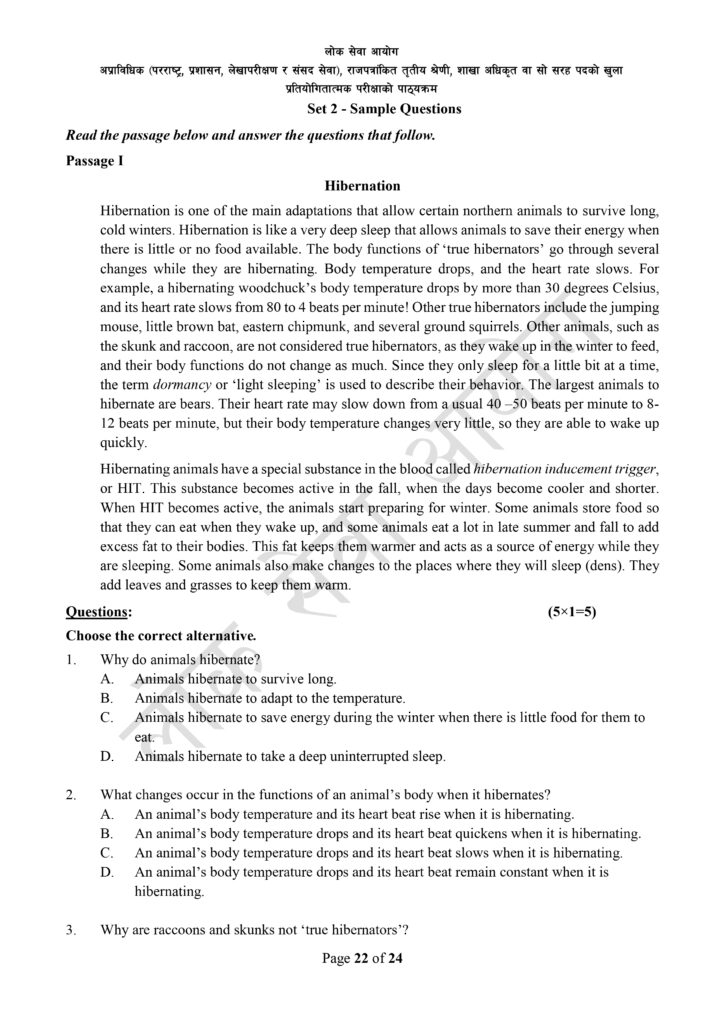
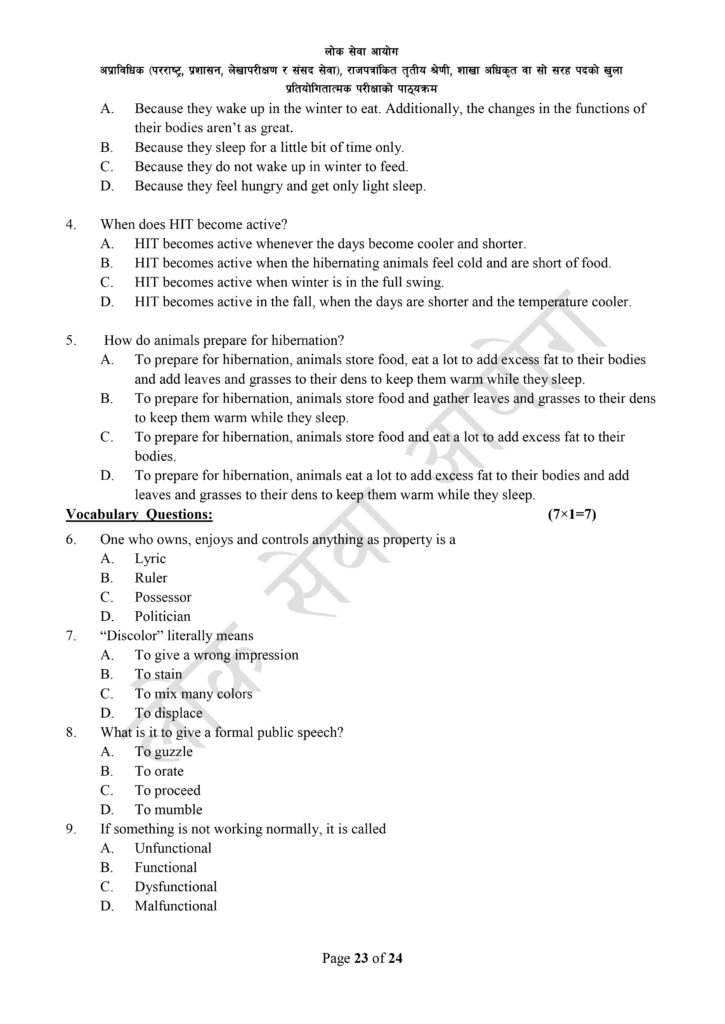
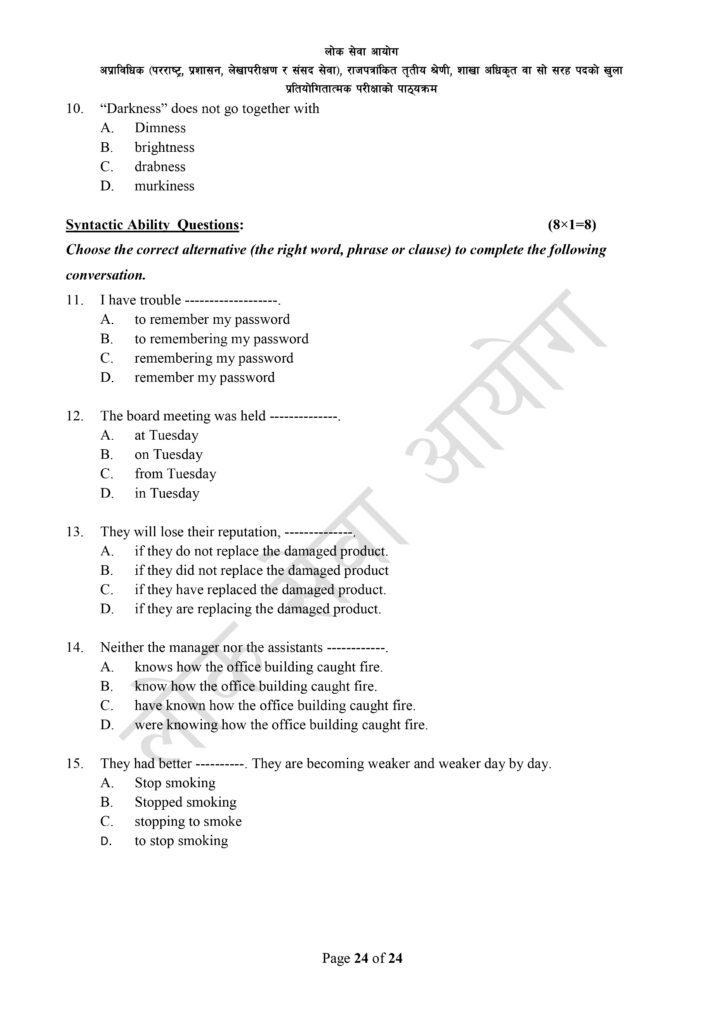
Introduction to the First Paper Exam Syllabus for Branch Officer
The first paper of the Branch Officer exam conducted by Loksewa Aayog is a critical step in the selection process. It primarily evaluates a candidate’s general awareness, analytical abilities, and understanding of administrative principles. The syllabus is designed to test foundational knowledge required for effective public service.
Key Areas Covered in the Syllabus:
- General Knowledge
- History, geography, culture, and socio-economic aspects of Nepal.
- Basic knowledge of international affairs and global organizations.
- Current Affairs
- Recent national and international events.
- Developments in governance, science, and technology.
- Aptitude and Reasoning
- Logical reasoning and problem-solving abilities.
- Quantitative aptitude including basic mathematics and data interpretation.
- Constitutional and Administrative Knowledge
- Fundamentals of the Constitution of Nepal.
- Principles of public administration and governance.
- Language and Communication Skills
- Proficiency in Nepali and English language.
- Comprehension, grammar, and essay writing skills.
This paper sets the foundation for further evaluation in the selection process, ensuring candidates possess the essential skills and knowledge to perform effectively as a Branch Officer.
Second Paper: Detailed Syllabus With Sample Questions
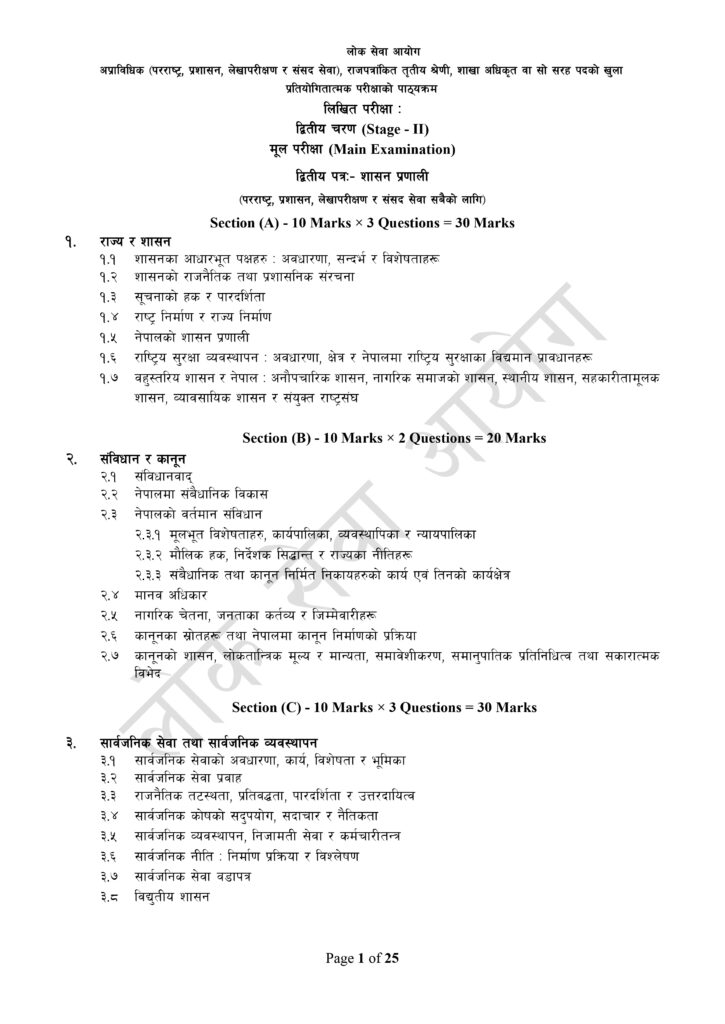
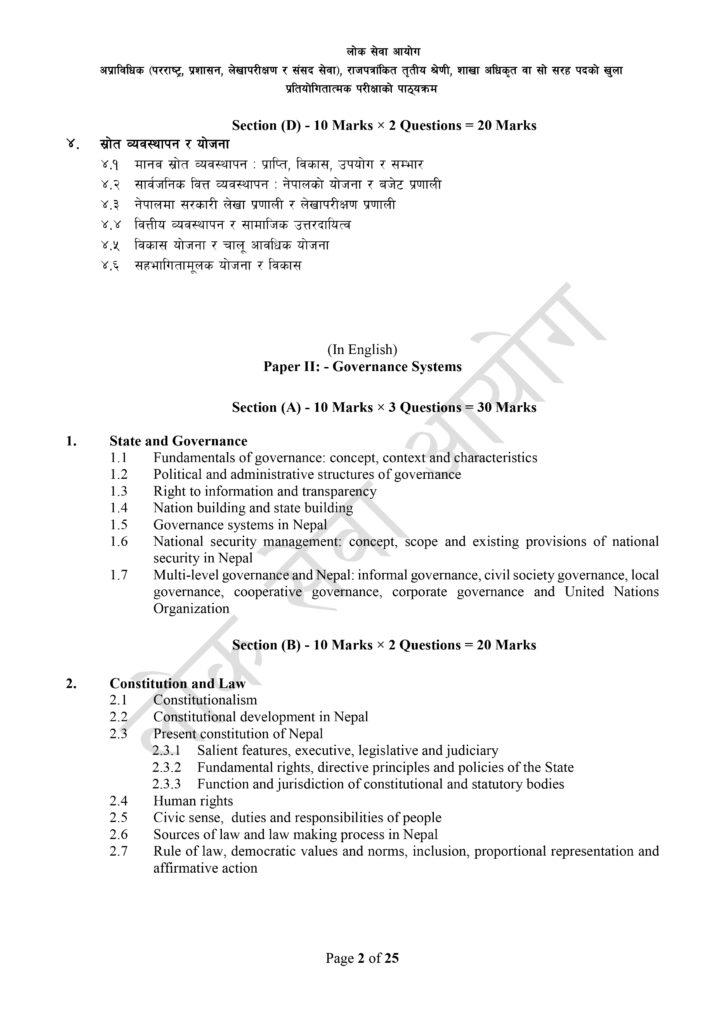
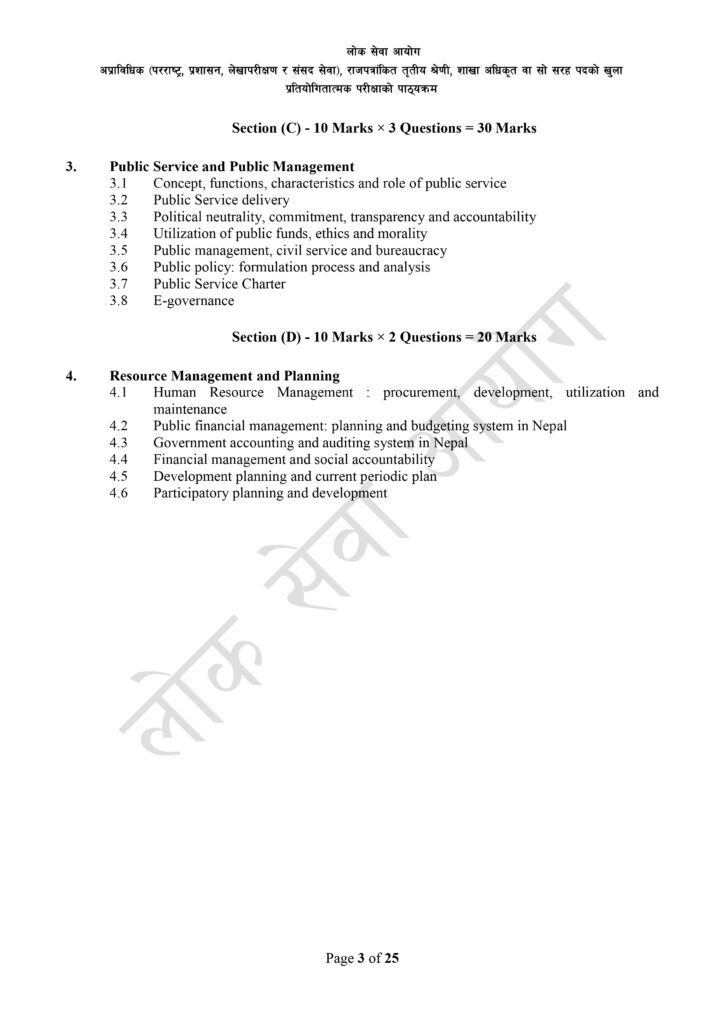
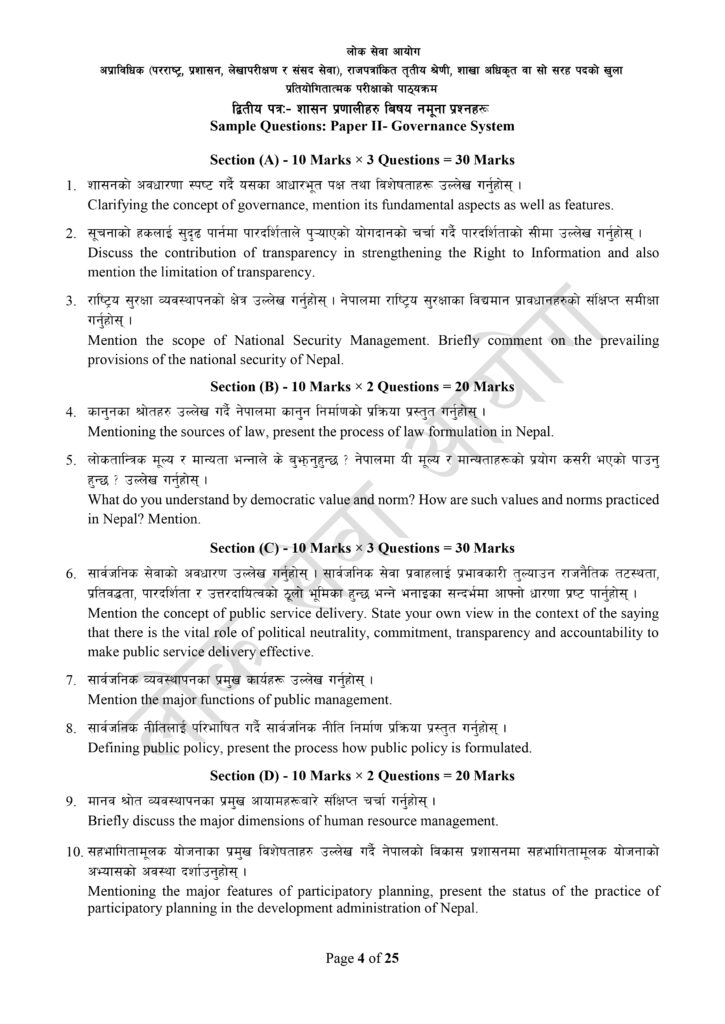
Short Introduction to the Second Paper Exam Syllabus of Loksewa Aayog
The second paper of the Loksewa Aayog exams is subject-specific and focuses on the technical and professional knowledge required for the applied position. It tests candidates on their expertise in the specific field relevant to the role, ensuring they have the depth of understanding and practical skills needed for effective performance in the job.
Key Components:
- Subject Knowledge: Detailed questions on the specific subject related to the applied position (e.g., law, engineering, health, or administration).
- Practical Application: Case studies, scenario-based questions, and problem-solving tasks.
- Policy and Regulations: Understanding of relevant laws, rules, and frameworks within the subject area.
This paper ensures that candidates are equipped with the specialized knowledge and competencies essential for their professional responsibilities.
Third Paper: Detailed Syllabus With Sample Questions
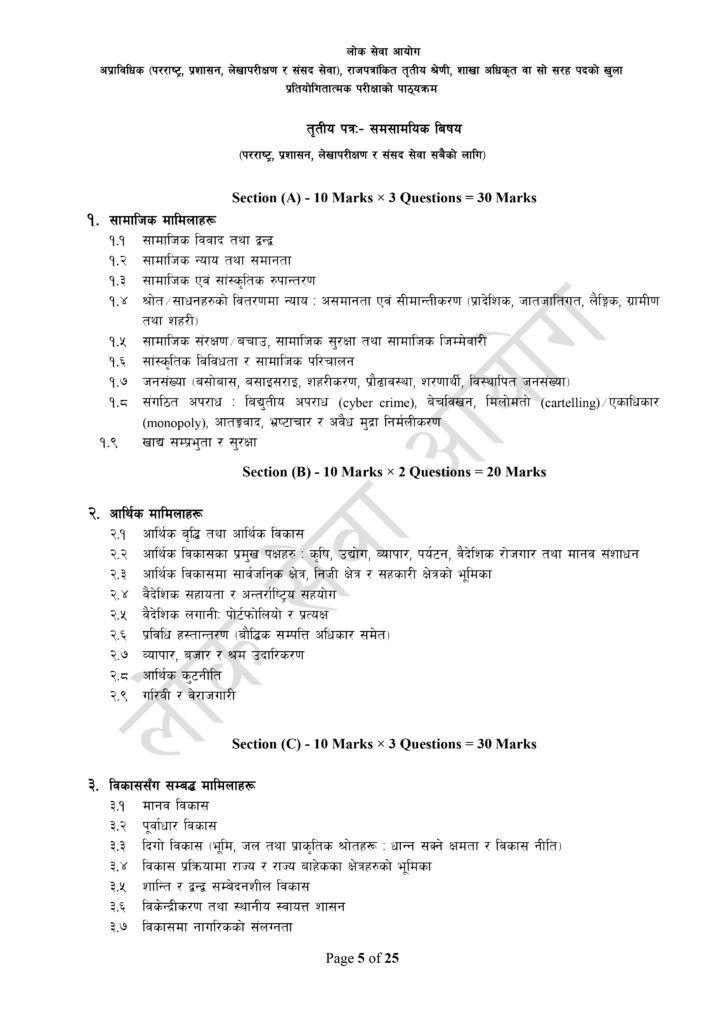
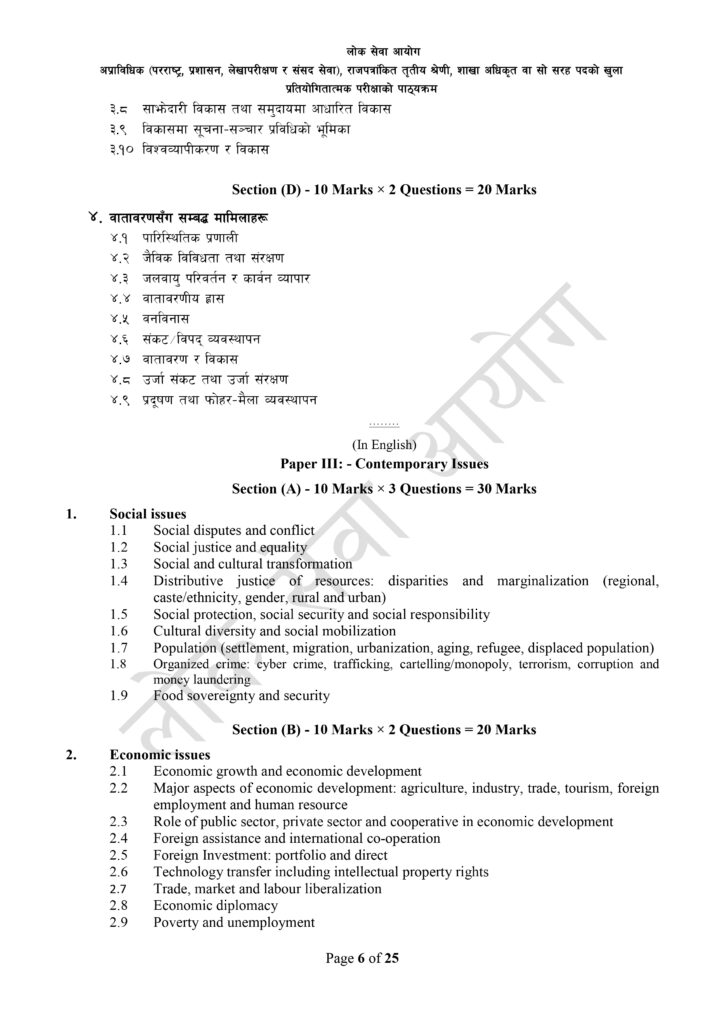


Short Introduction to the Second Paper Exam Syllabus of Loksewa Aayog
The third paper of the Branch Officer exam is designed to assess candidates’ practical understanding and application of managerial and administrative tasks. This paper emphasizes decision-making, problem-solving, and leadership abilities relevant to public administration.
Key Areas Covered in the Syllabus:
- Administrative Practices: Procedures and frameworks in public administration.
- Policy Analysis: Evaluation and formulation of policies and programs.
- Management Skills: Leadership, teamwork, and resource management.
- Ethics and Accountability: Understanding principles of ethical governance and transparency.
- Case Studies: Practical scenarios to test analytical and decision-making skills.
This paper ensures candidates are prepared to handle real-world challenges in administrative roles, demonstrating their ability to lead and manage effectively.
Fourth Paper: Detailed Syllabus With Sample Questions

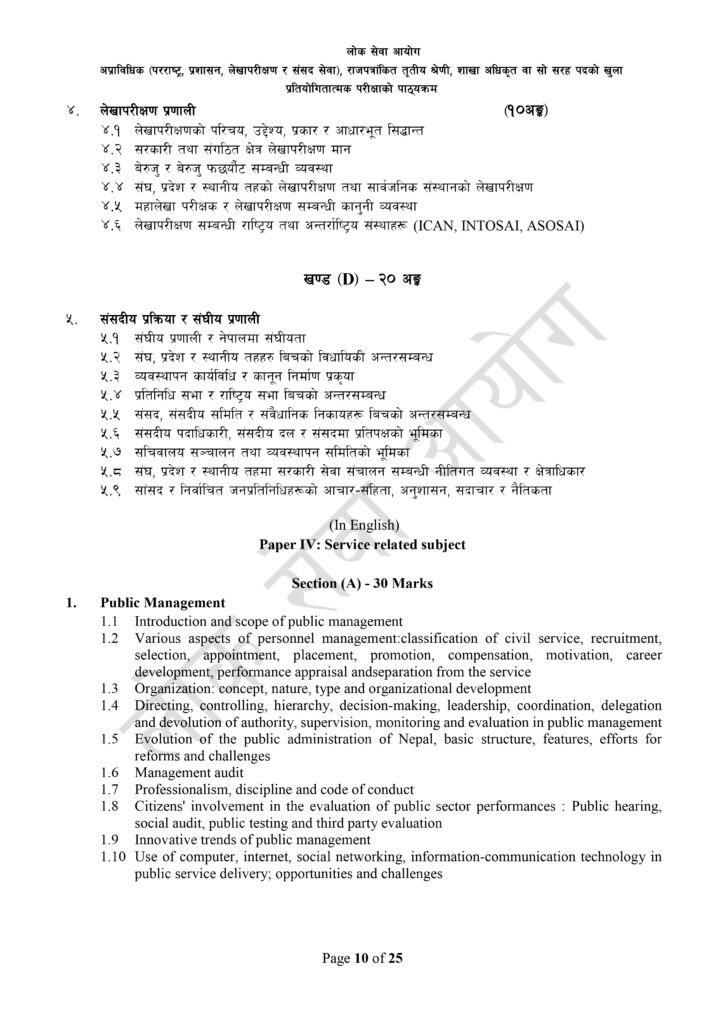
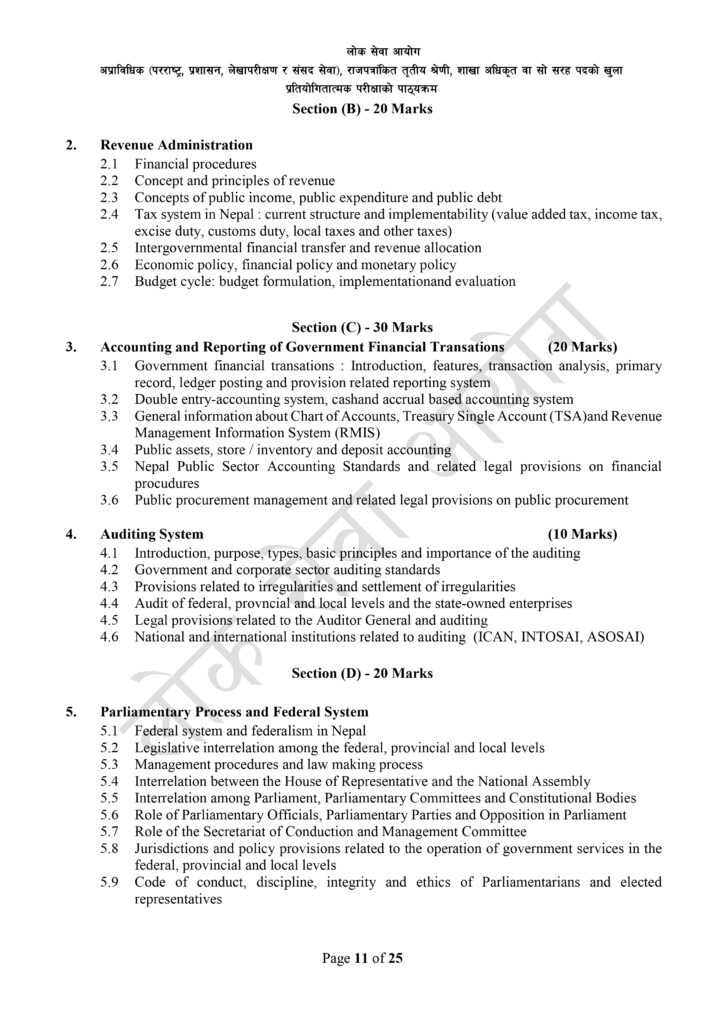
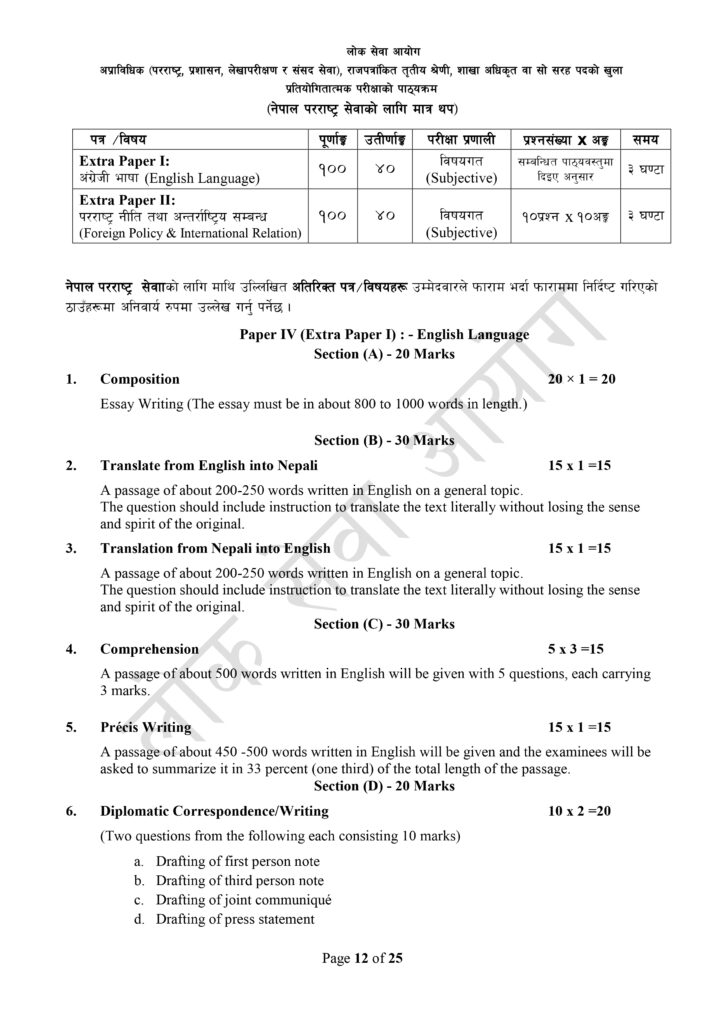
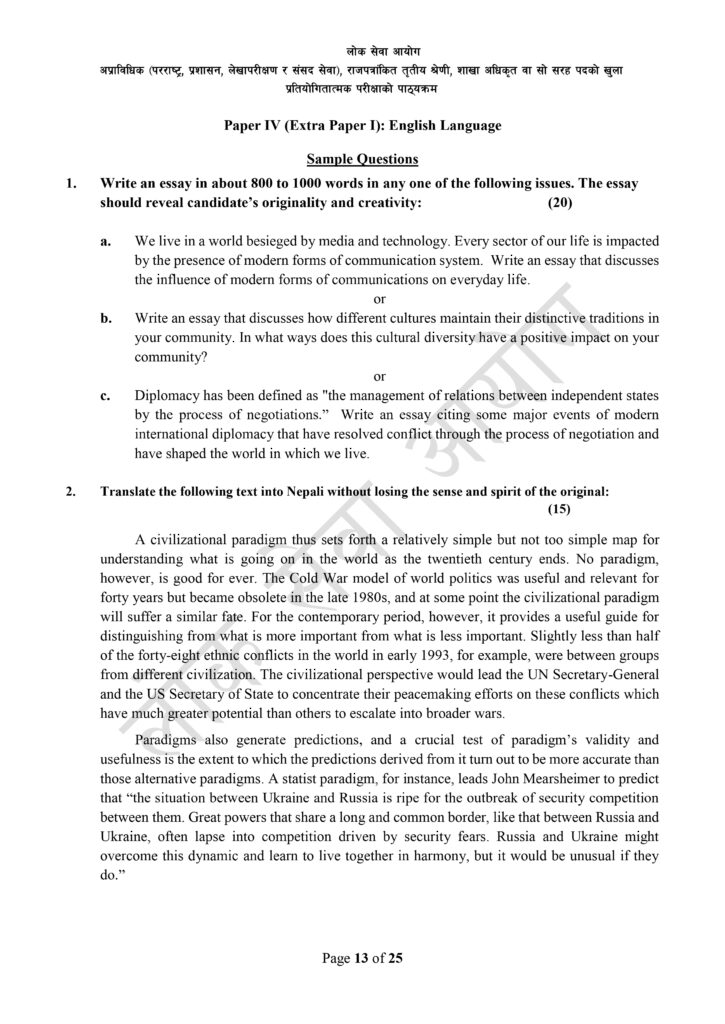
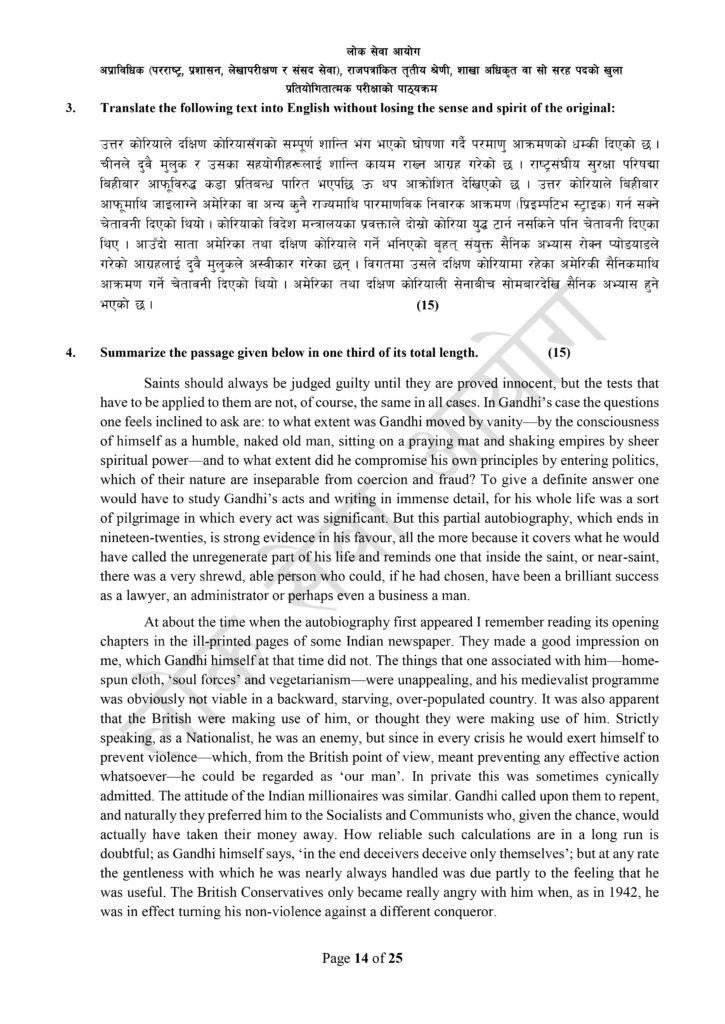
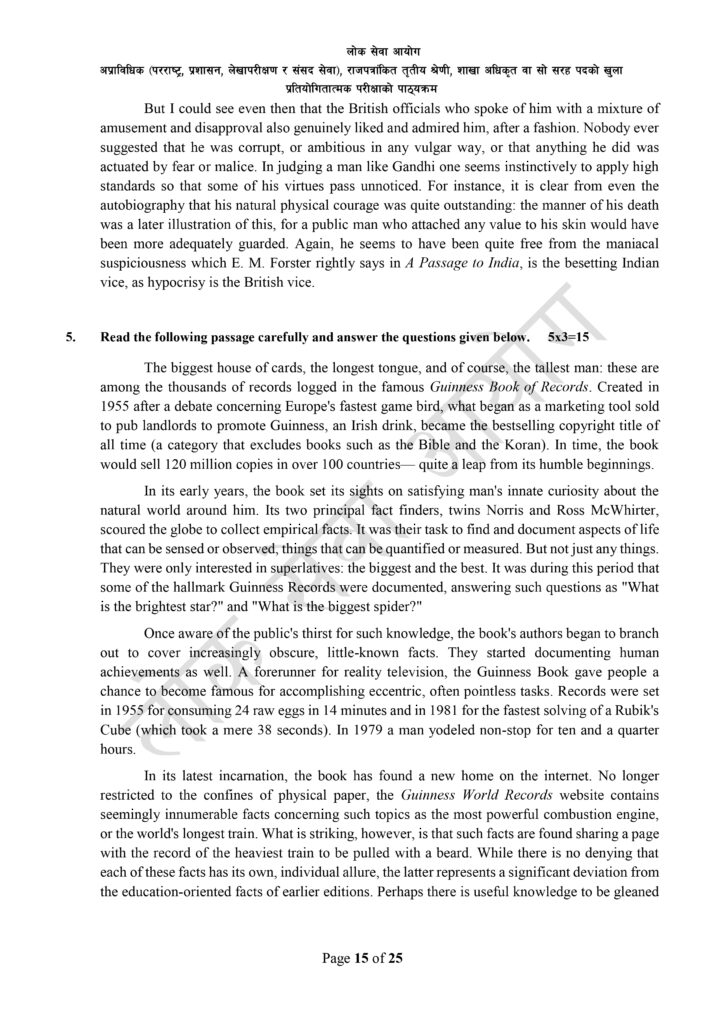
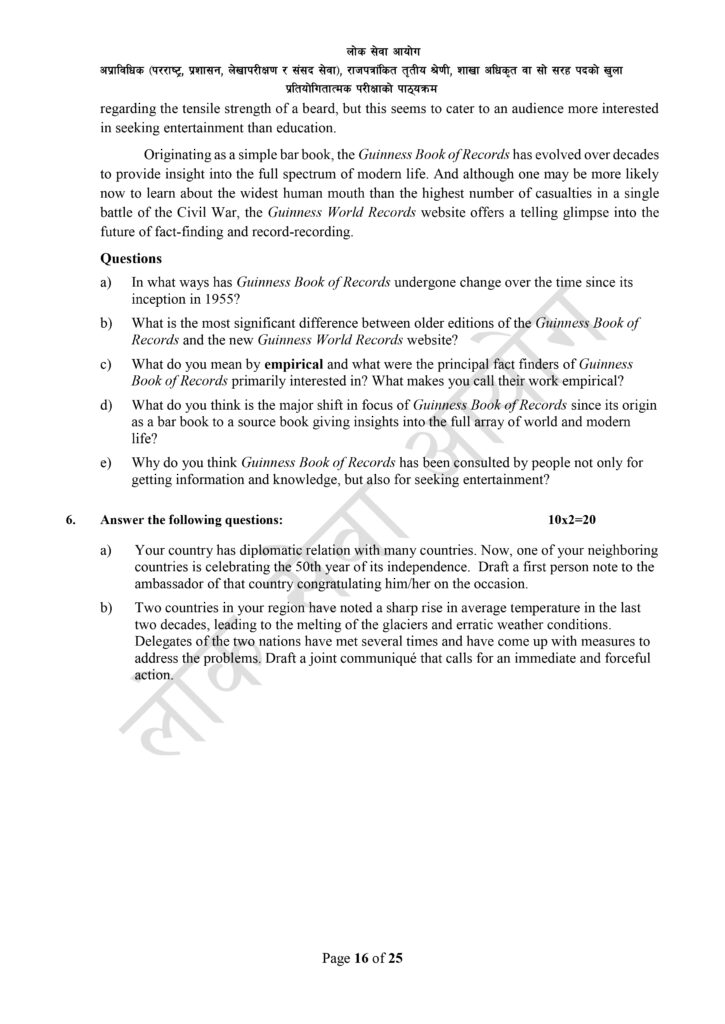
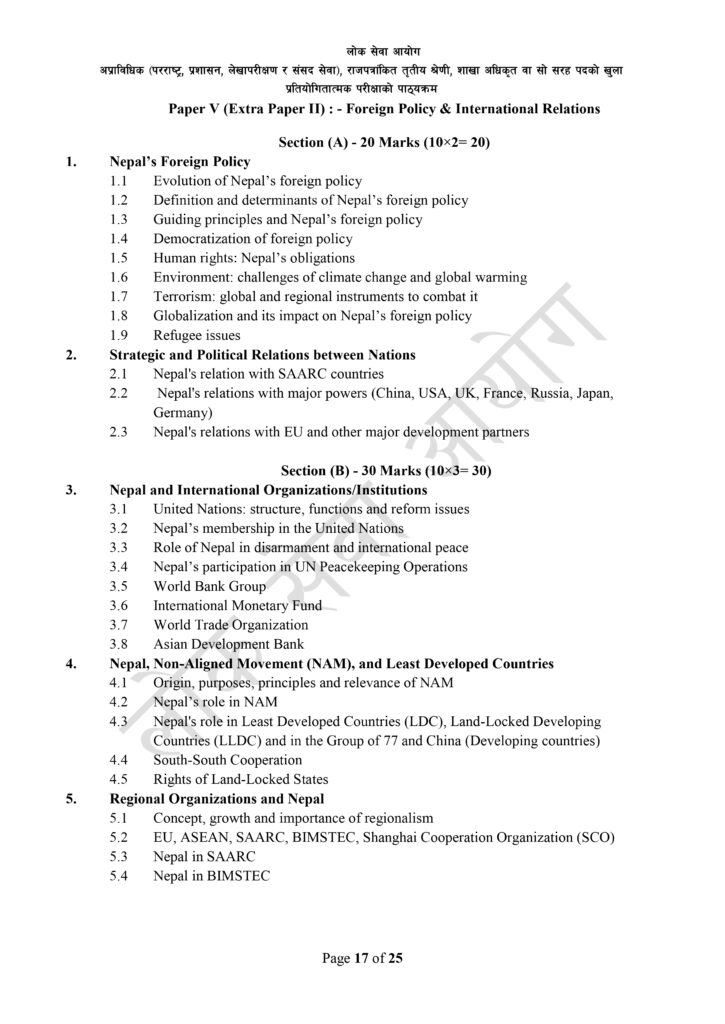
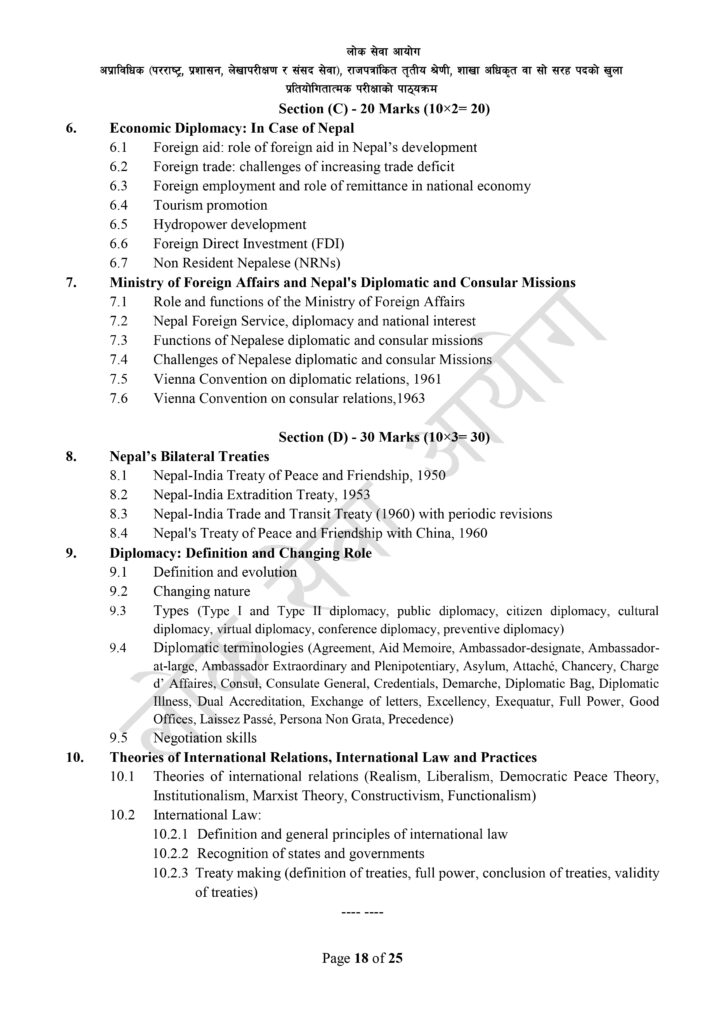


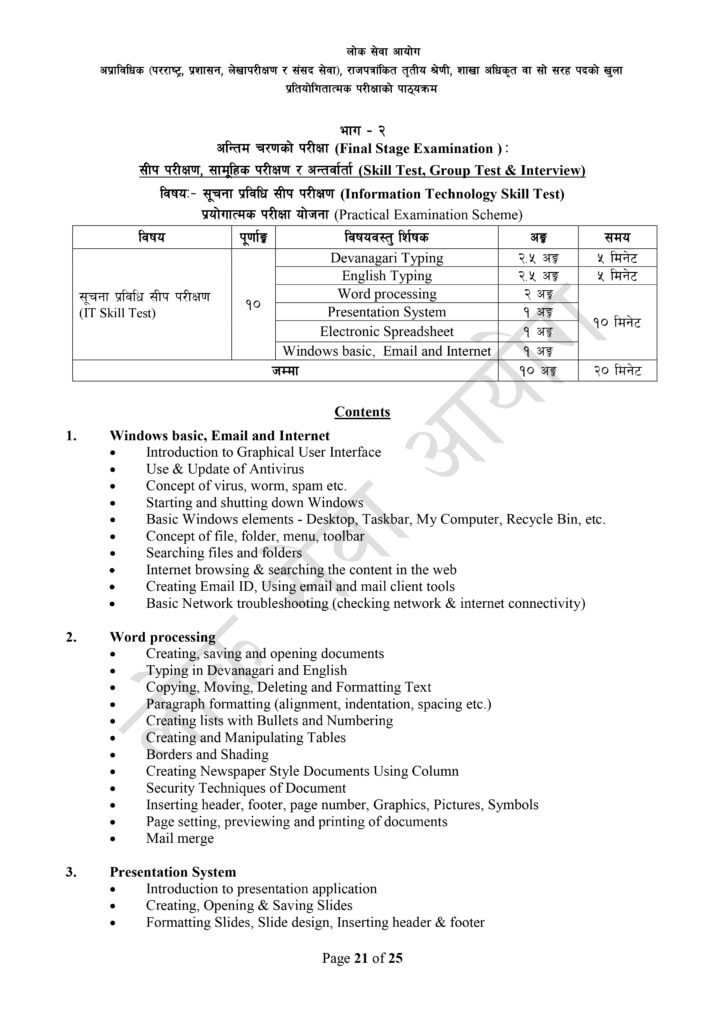
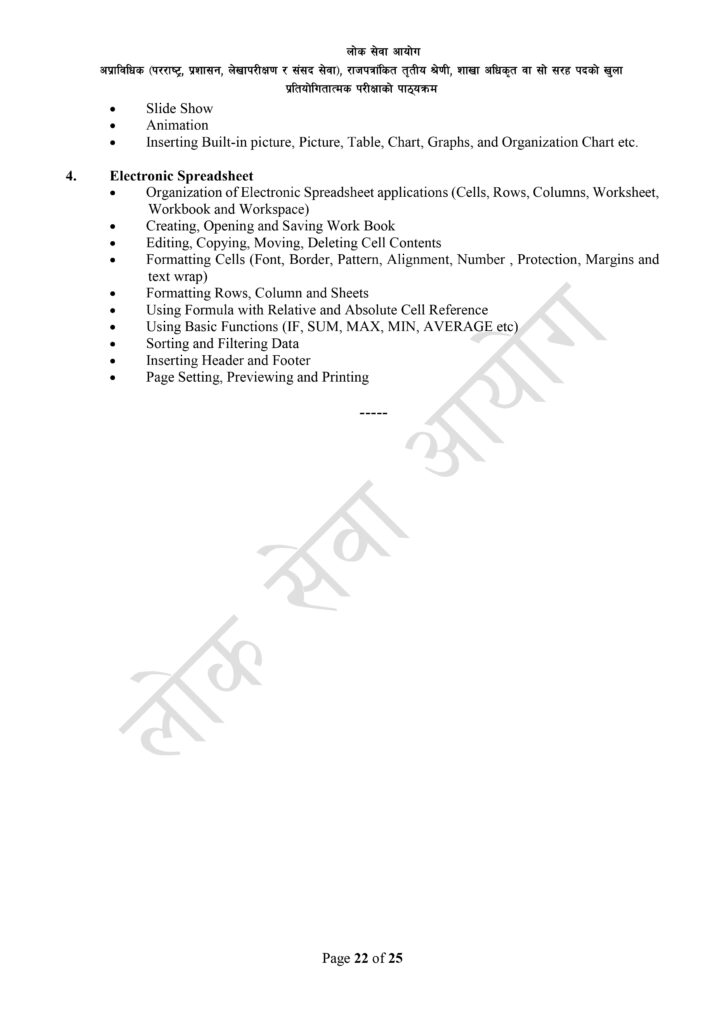
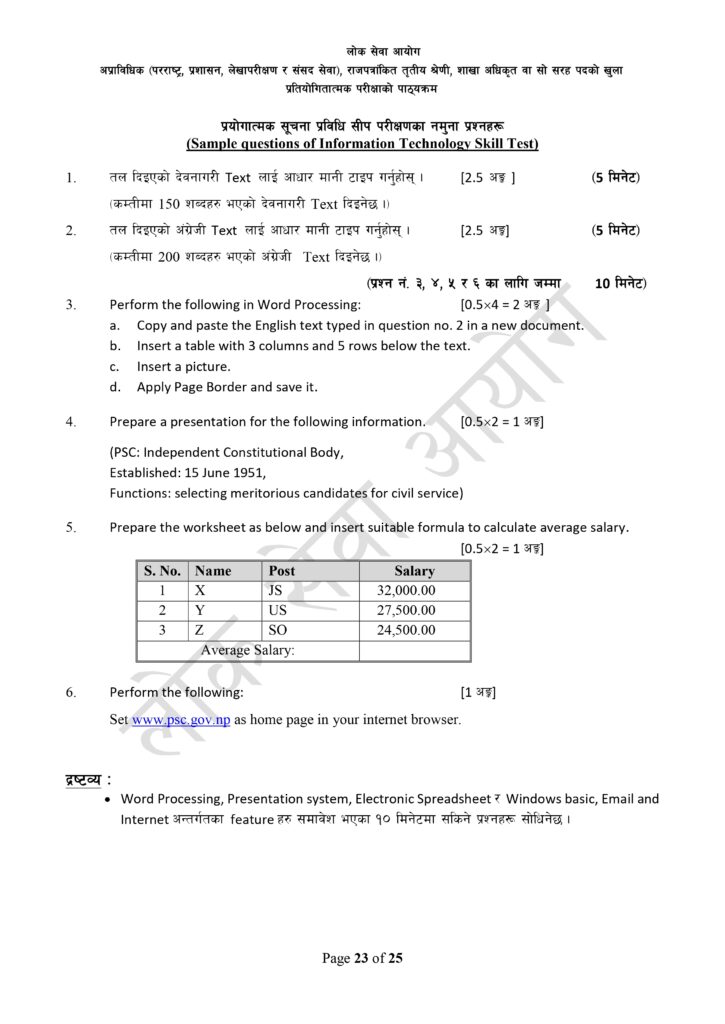
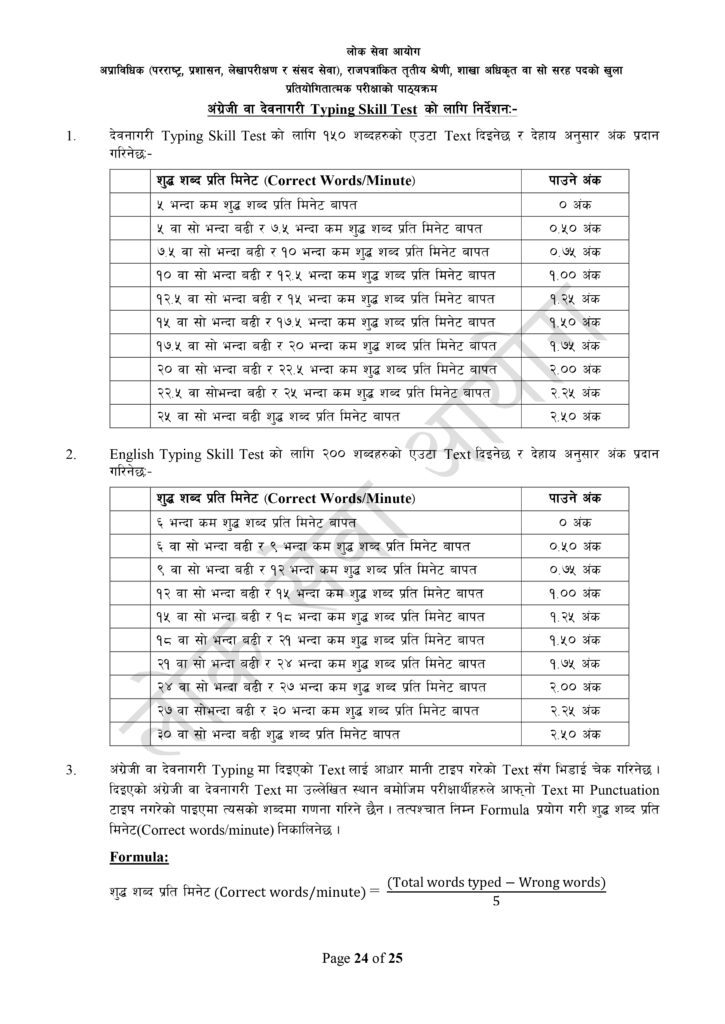
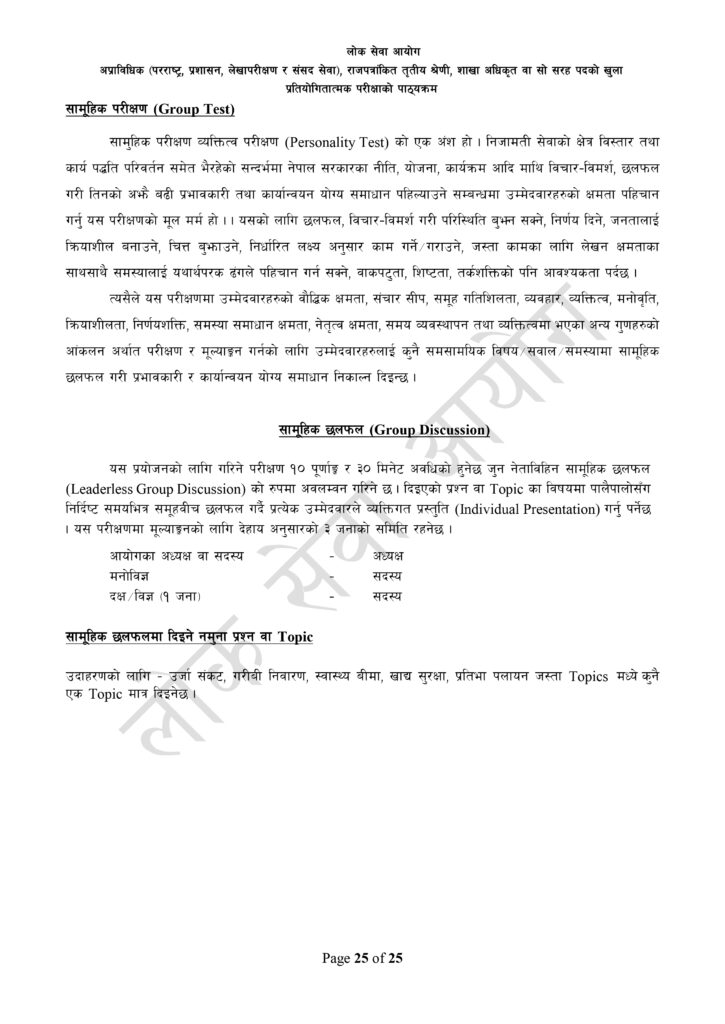
Short Introduction to the Fourth Paper Exam Syllabus of Branch Officer
The fourth paper of the Branch Officer exam focuses on advanced written communication and decision-making skills required in public administration. It evaluates candidates’ ability to articulate complex ideas clearly and present solutions effectively in written form.
Key Areas Covered in the Syllabus:
- Report Writing: Preparation of official reports and documents.
- Decision-Making Exercises: Scenario-based questions requiring analysis and solution-oriented writing.
- Essay Writing: Analytical and descriptive essays on governance, policy issues, and socio-economic topics.
- Policy Drafting: Skills in drafting policies, rules, and regulations.
- Formal Communication: Crafting letters, memos, and notices with clarity and precision.
This paper ensures that candidates possess the written communication skills essential for effective governance and administrative tasks.
Key Features of the Branch Officer Exam
- Eligibility: Candidates must possess a Bachelor’s degree from a recognized university.
- Exam Structure: The selection process involves three stages:
- Preliminary Exam: A screening test focusing on general knowledge, aptitude, and basic reasoning skills.
- Written Exam: A detailed assessment that evaluates candidates’ subject-specific knowledge and analytical abilities.
- Interview: A final evaluation of candidates’ personality, communication skills, and suitability for the role.
The Branch Officer Exam is highly competitive, attracting thousands of aspirants each year. Success in this exam opens the door to a respected career in civil service, allowing individuals to contribute significantly to Nepal’s governance and development.
